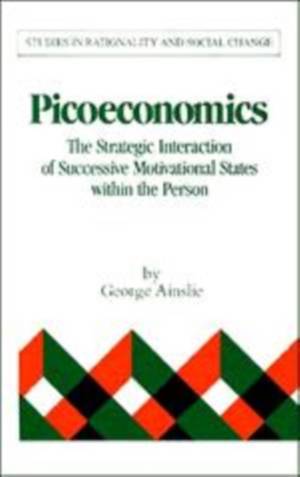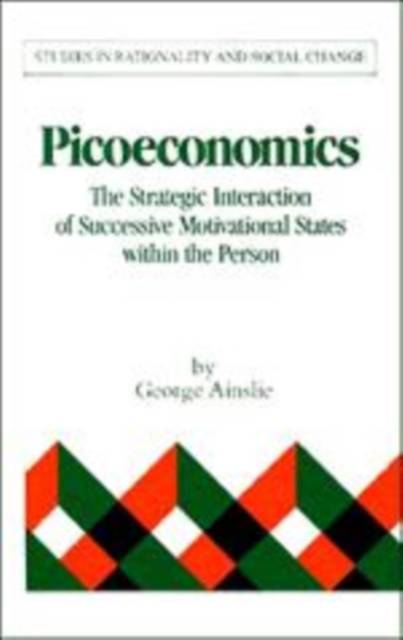
- Afhalen na 1 uur in een winkel met voorraad
- Gratis thuislevering in België vanaf € 30
- Ruim aanbod met 7 miljoen producten
- Afhalen na 1 uur in een winkel met voorraad
- Gratis thuislevering in België vanaf € 30
- Ruim aanbod met 7 miljoen producten
Zoeken
Picoeconomics
The Strategic Interaction of Successive Motivational States Within the Person
George Ainslie
€ 77,95
+ 155 punten
Omschrijving
Originally published in 1992, this book examines an elementary human paradox: that we are endangered by our own wishes; or, as Oscar Wilde put it, 'When the gods want to punish us they answer our prayers.' Even though this observation is ancient and confirmed by wide experience, none of the disciplines that deal with decision making explain it adequately. Dr. Ainslie uses findings from behavioral experiments to show that there is a basic tendency for humans to form temporary preferences for the poorer but earlier of two goals, when the poorer goal is closer at hand. The implications provide a rationale for puzzling behavior, from Frued's defense mechanism to the force of willpower, as well as conspicuous failures of willpower in addictions and other psychiatric disorders. This approach also sheds light on subjects that have been controversial in moral philosophy: weakness of will, self-deception, freedom, and responsibility.
Specificaties
Betrokkenen
- Auteur(s):
- Uitgeverij:
Inhoud
- Aantal bladzijden:
- 460
- Taal:
- Engels
- Reeks:
Eigenschappen
- Productcode (EAN):
- 9780521158701
- Verschijningsdatum:
- 25/11/2010
- Uitvoering:
- Paperback
- Formaat:
- Trade paperback (VS)
- Afmetingen:
- 140 mm x 216 mm
- Gewicht:
- 580 g

Alleen bij Standaard Boekhandel
+ 155 punten op je klantenkaart van Standaard Boekhandel
Beoordelingen
We publiceren alleen reviews die voldoen aan de voorwaarden voor reviews. Bekijk onze voorwaarden voor reviews.











